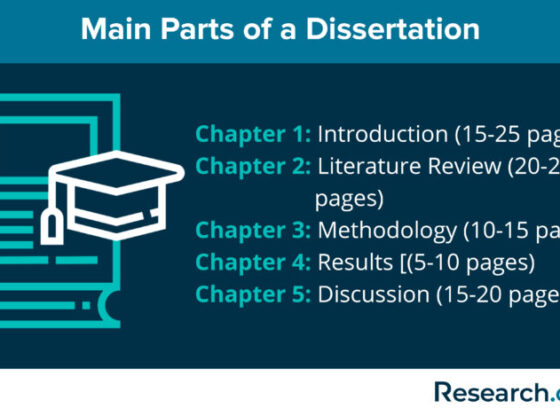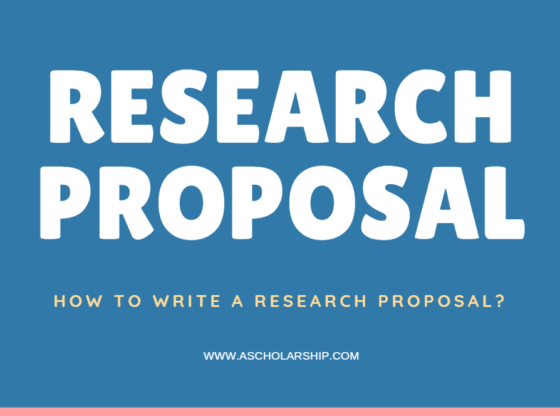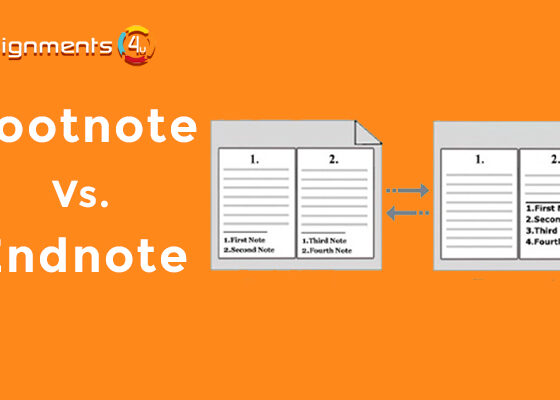Write an Abstract for a Thesis or Dissertation
When you read any scientific paper or journal article for your thesis or dissertation, what is the first thing that draws your attention? Do you read the entire thing or the small paragraph at the start of the paper or article called ‘Abstract’? If you read just that, it is a wise move on your part. The abstract is the heart and soul of any research paper or journal article, or, for that matter, a thesis or dissertation. Why so? Let’s find out. Know how to write an abstract for a thesis or dissertation.
Let us know whether you need Thesis Writing Help or Dissertation Writing Help.
Why is the abstract so important?
An essential part of any thesis or dissertation that many students tend to overlook is the abstract itself. You should know which factors to avoid while writing a research paper and which ones to take into account. It is a must for students or researchers because the abstract is key to your argument in your thesis or dissertation. Any person who reads your thesis or dissertation will decide to read it only when they find your abstract relevant and written to address that particular research area.
We also know that it will not be entirely possible to read the whole thesis or dissertation because of its sheer length, so do you know what people will read? Of course, the abstract! Without a well-written and informative abstract, you will not attract the right kind of academic audience or receive scholarly attention for your work. Being a researcher, one must know “How to Write an Abstract for Your Thesis or Dissertation.”
What is the structure of an abstract?

If you have read abstracts of other papers and articles, you might think that an abstract consists of a few sentences. The structure of an abstract does not make sense. But this small amalgamation of a few sentences at the start of your thesis or dissertation follows a structural pattern that one needs to consider. Therefore, you should learn Tips on Writing an Abstract for a Dissertation or Tips on Writing an Abstract for a Thesis.
The abstract is around three hundred to five hundred words, but logic is followed while writing the abstract for the thesis or dissertation. You will need to introduce your field of research, the knowledge gap that you found, followed by your objectives or research questions, the methods used to achieve specific results, and finally conclude with how you contributed to the field of knowledge.
Smart and Quick Tips to Write the Abstract for a Dissertation or Thesis
Now, with the idea of the structure of How to Write an Abstract for a Dissertation or Thesis, you might be overwhelmed with the amount of information you have to convey in just a limited number of words. An abstract that is written within the expected word limit while bringing in the right amount of data is considered a good abstract and the most suitable one. As students and future academicians, this art is something you need to imbibe and keep nourishing throughout your academic life. For your convenience, we put forth specific smart tips to write an abstract that you can follow and share with your colleagues.
1. Do read Abstracts of other articles or papers
The first step toward writing a good abstract for your thesis or dissertation is to read the abstracts of other articles and papers. In this way, you will get to know the style of writing an abstract and how abstracts are usually structured in your field of study.
2. Learn to be concise and precise
With a limited number of words to write, you have to make sure that you carefully choose every word of your abstract. So, no matter how interesting a knowledge fact you have observed, avoid mentioning it if it is not directly relevant to your thesis or dissertation.
3. Introduce new ideas in new sentences
Every sentence in your abstract should bring in new ideas and information related to each aspect of the structure that has been discussed before. Write two sentences on the broad area of research, then move on to two sentences on the knowledge gap, and so on. Try to write the sentences in a self-explanatory way.
4. Try your hand at reverse outlining
As we know, an abstract is a summarized version of your thesis or dissertation; reverse outlining might help you write a good abstract. For this, you need to revisit all your chapters and summarize them in 2–3 sentences while using keywords and making sure that the central arguments of each chapter are written down. Once this is done, revise all sentences to create a flow of discussion for the abstract.
5. Just provide factual information
An essential element of writing an abstract for a thesis or dissertation is that it should remain factual. You might have your opinions and thoughts to share, but that is done in your thesis or dissertation conclusion. So, avoid sharing ideas and personal reflections in your abstract, because otherwise it will lack structure and might even become highly vague to the readers.
6. The Abstract should remain focused on your research
Your research work will be built on another person’s research or adopt ideas or theories from others’ works. But that does not mean that you need to mention that at length in the abstract. References are not necessary in the abstract. If you go through these tips to write an abstract for a thesis or dissertation with examples, you will get clarity on the topic.
7. Follow formatting guidelines
Experts dealing with writing research papers take special care of formatting and several related factors. Suppose you have followed an in-text citation or a particular format for your thesis or dissertation, like APA, Chicago, MLA, etc.. In that case, you should go through the guidelines for their specific abstract writing as well. It will make your abstract clearer and more authentic, too. With all these guidelines, you will better understand what you need to write and let go of in the abstract.
Whether it is a thesis abstract example or a dissertation abstract example, it depends on many things. But if you have a grip on the language, you can write it with ease.
8. Edit, Revise, and Edit
The first time you write the abstract, it might not be perfect, as you need to learn how to write an abstract for a thesis or dissertation. You need to learn to edit and revise that again and edit it several times before you get a satisfactory result out of your writing.
Do a quick peer review, if possible! For this, you can show your draft abstract to some of your colleagues and see whether they understand what you have written. You can ask them to give you their comments on how to improve your abstract. You can then work on enhancing the quality of your abstract to make it meet the specific requirements.
9. Keep it simple
While writing an abstract for a thesis or dissertation, try to use simple and easy-to-understand words that are appropriate to your field of study. Sometimes, people make their abstracts difficult to understand just by adding fashionable words and jargon. Keeping it simple means that the abstract you are going to write will be easy to digest, even by a layman.
10. Be specific
Before you start writing an abstract for a thesis or dissertation, clearly outline your most important findings and insights. Do not shy away from writing too much about your research. An abstract for a thesis or dissertation is a concise summary of a research paper or entire thesis. Write the abstract in such a way that potential readers understand the key takeaways of your thesis or dissertation after going through it.
Conclusion: Write an Abstract for a Thesis or Dissertation
Tips for writing an abstract for a thesis or dissertation sample are mandatory to get more ideas. As you can understand, writing a good abstract requires a lot of patience, dedication, and capacity. Instead of viewing it as a challenge, we at SEO Content India want to make your work easier by helping you develop the best abstract for your thesis and dissertation to ease your academic research journey.
Do not forget to mention (WWHS) what, why, how, and so what your research is for this abstract, which you are writing for your dissertation or thesis.
Frequently Asked Questions (FAQs) about Thesis/Dissertation Abstract
Q: Is it mandatory to write an abstract for a thesis?
A: A thesis is incomplete without an abstract. It is a core component of any paper that gives the reader an overview of the document. It can be a form of a summary. The proven fact is that it is helpful for the audience to thoroughly identify whether a document’s contents are relevant to their purpose, as it offers a zest of the same. To write an abstract for a thesis, keep the word limit in the 150-300 words range to meet the target. It can be an opportunity to be cited in other academic records through indexing.
Q: What points must you remember while writing an abstract for a thesis?
A: The common question from many students is what points you need to consider while writing an abstract for a thesis. There are some pointers that you cannot miss out on. Ensure background relevancy with all necessary objectives, allowing readers to understand your vision. One must include the results of research and methods used to obtain them.
Q: What steps make it possible for me to write an abstract for a dissertation best in all respects?
A: While you write an abstract for a dissertation, your primary goal must be to convey the message clearly and effectively. The abstract should impart your paper in a nutshell. By using simple words, readers will find the abstract easy to understand. Stick to the word limit and focus on the key components of the paper. The trick is to keep the reader engaged by following a well-structured approach. In other cases, you can get assistance from external sources such as writing agencies to form a comprehensive dissertation abstract.
Q: What mistakes do people make when they write an abstract for a dissertation?
A: An abstract is simple. However, some silly mistakes can ruin it and reduce the reliability of your dissertation. By following the procedure, you can’t go wrong with your abstract. However, look out for these mistakes. Contain your abstract within the specified word limit. It is essential not to include irrelevant or additional information, as that defeats the purpose of an abstract. Please stay on topic and keep it well-structured.
Q: Should I write an abstract for a thesis before or after?
A: You should write an abstract for a thesis after you have completed the paper. Through this, you can avoid adding extra information. It allows you to add the relevant key points concisely. You can cite your methodology and present your conclusions. An abstract is the reflection of your thesis. However, you can work on the abstract before the thesis but must frame it so that the actual paper does not deviate from the point.
Q: Can I get services for abstract writing?
A: Definitely! Many agencies, including SEO Content India, help you write an abstract for a dissertation or thesis. It is essential to select a good writing agency. SEO Content India is a prime choice for abstract writing. You can receive delivery for your urgent needs with a quick turnaround time. This agency provides good-quality content and ensures your requirements match deliverables.
More Resources:












